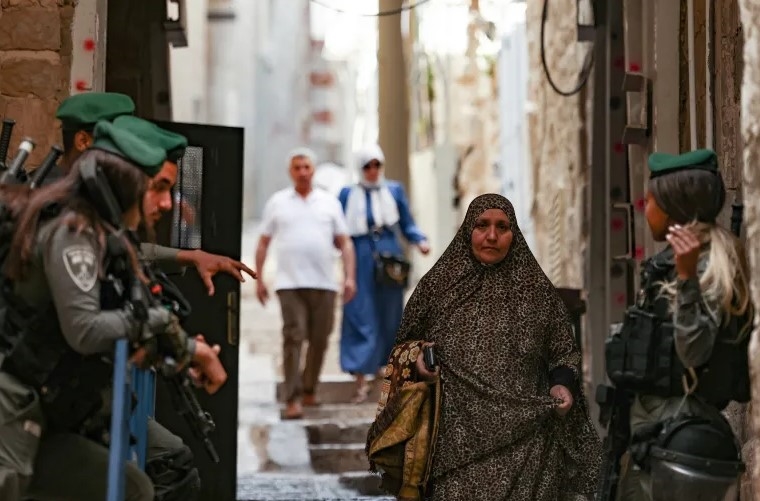The Israeli army deployed its forces at the crossings leading to Jerusalem, scrutinizing the identities of Palestinians and denying entry to some of them.
The Qalandia crossing in northern Jerusalem and the Checkpoint “300” in the south of the city witnessed active movement at the entry gates from the West Bank toward Jerusalem.
A 78-year-old Palestinian, Ibrahim Abayat, told Anadolu that he was prevented Friday morning from reaching Jerusalem without any valid reason.
He pointed out that he had obtained a special permit three days ago but the Israeli forces refused to allow his entry.
Nihaya Nassar, 71, stated the Israeli authorities prevented her from entering Jerusalem under the pretext of not obtaining a special permit.
This special permit requires the issuance of a magnetic card which takes 12 days to obtain, Nassar continued, adding she was sad to have missed the last Friday of the Muslim holy month of Ramadan.
On Saturday night, tens of thousands of Palestinians are expected to celebrate Laylat al-Qadr, the holiest night of Ramadan, in the Al-Aqsa Mosque.
The Israeli police announced on Thursday that it will deploy 3,600 personnel in the city of East Jerusalem between Friday prayers and Saturday morning.
Before the start of Ramadan, the Israeli government announced that “during the Fridays throughout the month of Ramadan, people from Judea and Samaria (the Torah name for the West Bank) will be allowed to enter Jerusalem subject to possessing a valid magnetic (security) permit and assessing the security situation.”
The army added that only men over the age of 55, women over the age of 50, and children under the age of 10 will be allowed into Jerusalem.
The new measures do not include residents of the Gaza Strip, where Israeli authorities prohibit their entry into Jerusalem except with special permits.
Israel has waged a deadly military offensive on Gaza since an Oct. 7 cross-border attack by the Palestinian resistance group Hamas, in which nearly 1,200 Israelis were killed.
More than 33,000 Palestinians, mostly women and children, have since been killed and more than 75,600 injured amid mass destruction and shortages of necessities.
The Israeli army has also imposed a blockade on the Gaza Strip, leaving most of the population, particularly residents of the north, on the verge of starvation.
The Israeli war has pushed 85% of Gaza’s population into internal displacement amid acute shortages of food, clean water, and medicine, while 60% of the enclave’s infrastructure has been damaged or destroyed, according to the UN.
